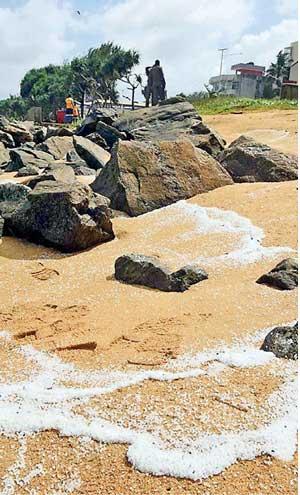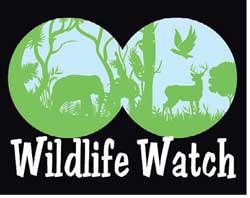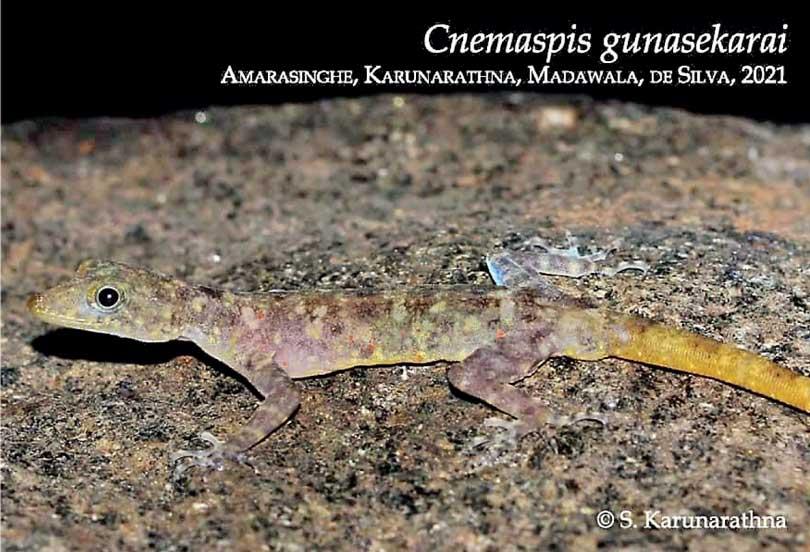07 Jun 2021 - {{hitsCtrl.values.hits}}
 Sri Lanka witnessed a mass scale ecocide at the onset of the pandemic which has unfortunately continued to date. At one point, the ongoing environmental destruction prompted environmental activists and the public to take matters to their hands and stage protests, calling on the government to do the right thing. So far around 15 incidents of mass scale ecocide have been reported but many incidents also have gone unreported. When the world’s biodiversity is at a recovery phase, Sri Lanka’s biodiversity has faced a challenging period. Adding to the devastation is the recent inferno aboard X-Press Pearl ship which has now posed a greater threat to Sri Lanka’s marine ecosystems.
Sri Lanka witnessed a mass scale ecocide at the onset of the pandemic which has unfortunately continued to date. At one point, the ongoing environmental destruction prompted environmental activists and the public to take matters to their hands and stage protests, calling on the government to do the right thing. So far around 15 incidents of mass scale ecocide have been reported but many incidents also have gone unreported. When the world’s biodiversity is at a recovery phase, Sri Lanka’s biodiversity has faced a challenging period. Adding to the devastation is the recent inferno aboard X-Press Pearl ship which has now posed a greater threat to Sri Lanka’s marine ecosystems.
Bill is still at a discussion stage and observations are being done by Ministry of Agriculture and Department of Animal Production and Health. “It will be discussed in Parliament soon.
The delay is due to
COVID and the prevailing situation.”
Minister of Wildlife and Forest Conservation C. B Ratnayake
X-Press Pearl inferno causes major impact on marine environments
 The unexpected inferno that occurred onboard X-Press Pearl cargo vessel caused much pollution to Sri Lankan waters. The vessel carried around 25 tonnes of nitric acid and chemicals such as caustic soda, solid sodium methoxide, vinyl acetate, ethanol and the amount of chemicals or containers that leaked to the ocean is yet to be analysed. While the Marine Environmental Protection Authority (MEPA) is investigating on water samples a major issue arose with regards to plastic pellets or nurdles that washed ashore. The pellets have moved to shores as far as Midigama, Weligama, Kalpitiya, Thoduwawa posing a double blow on the livelihoods of fisherfolk. It has been estimated that at least three containers of plastic pellets may have released to the ocean and marine conservation groups suggest that missing pellets should be calculated by compiling an account of collected pellets. However another worrying situation is the number of marine animal carcasses that have washed ashore following the incident. While it is too early to predict if it is a direct cause of the unfortunate incident, many fear that the inferno caused an irreversible damage to the pristine Sri Lankan waters.
The unexpected inferno that occurred onboard X-Press Pearl cargo vessel caused much pollution to Sri Lankan waters. The vessel carried around 25 tonnes of nitric acid and chemicals such as caustic soda, solid sodium methoxide, vinyl acetate, ethanol and the amount of chemicals or containers that leaked to the ocean is yet to be analysed. While the Marine Environmental Protection Authority (MEPA) is investigating on water samples a major issue arose with regards to plastic pellets or nurdles that washed ashore. The pellets have moved to shores as far as Midigama, Weligama, Kalpitiya, Thoduwawa posing a double blow on the livelihoods of fisherfolk. It has been estimated that at least three containers of plastic pellets may have released to the ocean and marine conservation groups suggest that missing pellets should be calculated by compiling an account of collected pellets. However another worrying situation is the number of marine animal carcasses that have washed ashore following the incident. While it is too early to predict if it is a direct cause of the unfortunate incident, many fear that the inferno caused an irreversible damage to the pristine Sri Lankan waters.
The Bill will hopefully be taken before Cabinet next Tuesday (8th of June). “But this is not the final version and the Certificate of Constitutionality should be issued by the Attorney General’s Department. But this is a big step.”
Animal rights activist and attorney-at-law Lalani Perera
Two new species of geckoes found in Sri Lanka
 Two new species of geckoes were discovered by a group of researchers including Sumeera Suranjan Karunaratne, Thasun Amarasinghe, Manjitha Madawala and Dr. Anslem De Silva. Even though the two species are endemic to Sri Lanka the researchers opine that both species are facing threats of extinction. However what is significant about this new finding is that the two geckoes were named in honour of two environmental activists who have rendered a yeoman service to conserving Sri Lanka’s biodiversity, namely environmental lawyer Dr. Jagath Gunawardena and Former Customs Director General Samantha Gunasekara. The two geckoes were therefore named as Cnemaspis gunawardanai and Cnemaspis gunasekarai.
Two new species of geckoes were discovered by a group of researchers including Sumeera Suranjan Karunaratne, Thasun Amarasinghe, Manjitha Madawala and Dr. Anslem De Silva. Even though the two species are endemic to Sri Lanka the researchers opine that both species are facing threats of extinction. However what is significant about this new finding is that the two geckoes were named in honour of two environmental activists who have rendered a yeoman service to conserving Sri Lanka’s biodiversity, namely environmental lawyer Dr. Jagath Gunawardena and Former Customs Director General Samantha Gunasekara. The two geckoes were therefore named as Cnemaspis gunawardanai and Cnemaspis gunasekarai.
Animal abuse incidents and the Animal Welfare Bill
The welfare of animals in Sri Lanka is governed by the archaic Prevention of Cruelty to Animals Ordinance No. 13 of 1907 that allows a perpetrator to pay a mere Rs. 100 and get away after committing any heinous act to an animal. A country that has listened to the words of the Buddha and portrayed itself as a Buddhist country has largely ignored how animals have been mistreated. From elephants held in captivity to accidents, deliberate attacks on stray animals the list is endless. But several animal welfare activists are continuing the struggle to pass the long overdue Animal Welfare Bill. As per the last update a group of activists met with then Minister of Agriculture Mahindananda Aluthgamage who had promised to brief the Cabinet.
The unexpected inferno that occurred onboard X-Press Pearl cargo vessel caused much pollution to Sri Lankan waters. The vessel carried around 25 tonnes of nitric acid and chemicals such as caustic soda, solid sodium methoxide, vinyl acetate, ethanol and the amount of chemicals or containers that leaked to the ocean is yet to be analysed.
But that was that. Animal sacrifice rituals and holding animals in captivity continue to take place in religious institutions contradicting the principles of kindness and compassion. Deliberate attempts to hurt stray animals have been reported from all over the island, including that of an American Pitbull, Kane from Kuliyapitiya who was at the receiving end of a personal dispute. Many reports of lost and found cases have also been reported and speculation is rife about possible attempts of illegal breeding. Many are of the view that the Animal Welfare Bill would go along the same tide as that of the cattle slaughter ban. Prime Minister Mahinda Rajapaksa announced the ban on cattle slaughter in September 2020 but ironically, three months later, Sri Lanka also witnessed the opening of South Asia’s largest meat processing plant.

18 Apr 2024 4 minute ago
18 Apr 2024 29 minute ago
18 Apr 2024 55 minute ago
18 Apr 2024 2 hours ago